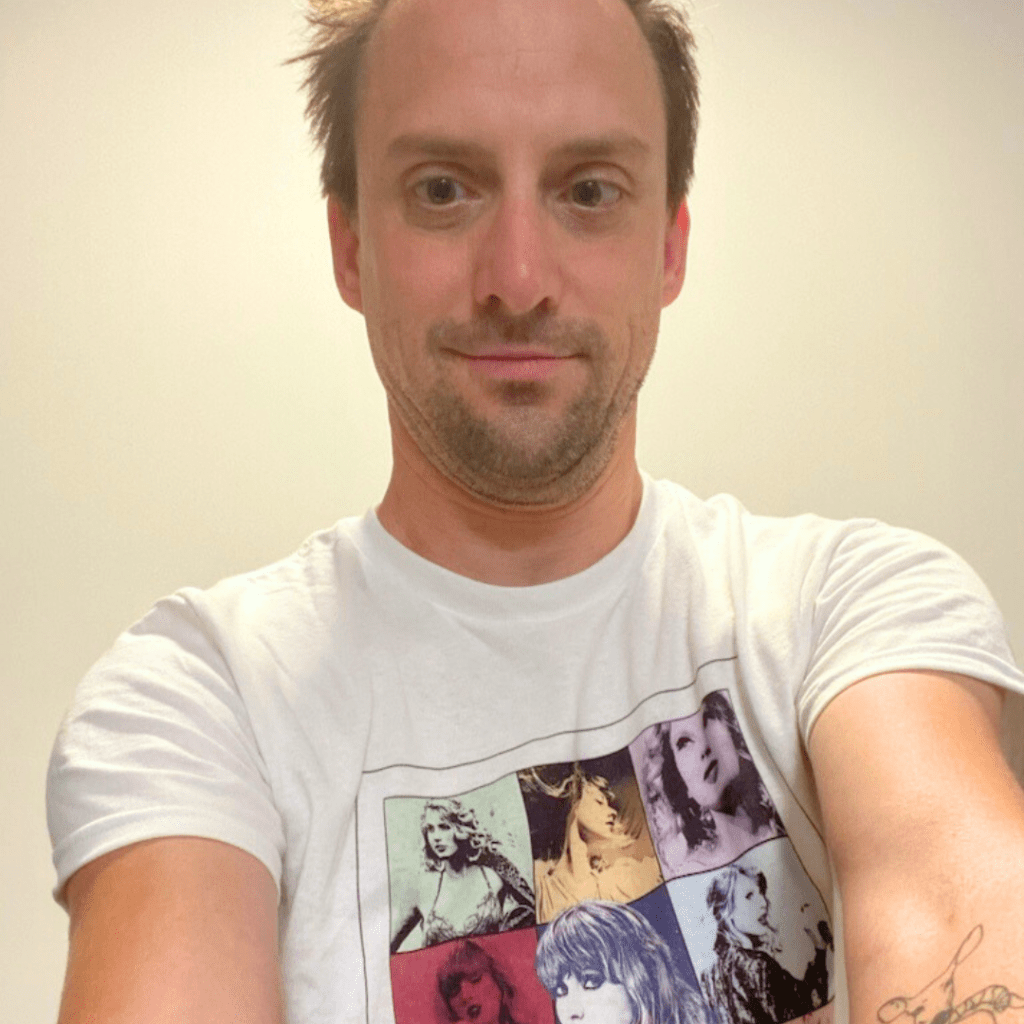Andrew's journey

Early challenges
Born prematurely in 1985, Andrew faced challenges from the very start. Frequent illnesses marked his early years, but a bout of meningitis at age three left a lasting impact. As Andrew puts it, “Because I got a temperature, it hurt my brain.” From that moment, life became even more difficult. His development was severely impaired – his motor skills were affected, he was non-verbal and his social and cognitive abilities lagged. School was an uphill battle, marked by relentless bullying, and a turbulent home life only added to the strain. Unsurprisingly, Andrew’s mental health suffered under the weight of these challenges. “I never had any friends at all…I couldn’t talk, you know. I struggled a lot with anxiety, and I had depression for ages. I still struggle, but I know I still have something to say.”
Support and learning independence
Parental support came in the form of a father who, as an engineer, approached challenges with logic and problem solving. “I have probably got a lot of support from my father… he’s more of the type who would point you in the right direction, but he won’t do it for you.” For Andrew that meant learning to try, to explore, to see what worked.
Speech therapy has played a significant role in Andrew’s development, but had also been a source of frustration.. “I found that during my therapy I was fine but when I left and had to talk in everyday situations, I would choke.” The real breakthrough came unexpectedly, from an actor’s words. “The thing that helped me most was seeing Dennis Hopper in an interview, and he said something like the best actors are those who find it hard to communicate. That spoke to me.” Acting became another tool, another form of expression that made speaking easier for Andrew.
Finding a voice through music and content creation
“The music I was playing really helped a lot. “It became a source of comfort and expression. And, Andrew had big dreams. “Growing up I had this dream that I would be on a TV channel and all that.” While those dreams seemed out of reach, they never truly faded. They remained, quietly pushing Andrew forward.
Content creation became an outlet. Now, at 39 and unemployed, hobbies like making videos and karaoke became a way to connect with the world. “I like to create videos where I just chat about topics that I’m interested in, and I say to them I was a person who couldn’t talk properly and then everything changed. It sort of creates hope.” It was a way to build confidence, to tell a story, to remind others that transformation was possible.
Overcoming homelessness
Between the years of 2023 and 2024, tragedy struck when he lost his mother and he also found himself homeless. Feeling unsafe in a housing situation led to months without a stable home. But, resilience showed up once again. “I advocated for myself by contacting local government and they helped me find somewhere to live.” It was another reminder that self-advocacy could open doors, that persistence mattered.
Andrew’s advice
When asked what advice he would give others living with brain injury, his response is insightful “The brain isn’t plastic, it’s not glass – it’s jelly. It can change and grow. It can do a lot of things, but you have to be open to trying new things. Because, if you’re in a place and you are hoping to have everybody help you, then that brain will just go to sleep.” Andrew’s words remind us that, growth requires action and healing requires effort.
Finding strength in stories
Even in fiction, there are lessons to be found. “There’s a lot of truth put into TV shows and films that is really pure. Like say, a horror film, where a person has to fight for themselves to get to the end of the film. There’s strength in that.” And strength, in all its forms, has been the defining force behind Andrew’s journey- one of struggle, resilience, creativity, and hope.